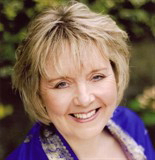Other Links
Editorial Board
- Editor - Bill Kenny
Founder - Len Mullenger
Google Site Search
SEEN
AND HEARD FESTIVAL REVIEW
Oxford Lieder
Festival (4): Ravel, Britten and Berkeley
Susan Bickley
(mezzo soprano) Julius Drake (piano), Jaqueline du Pré Building, St
Hilda’s College, Oxford, 18.10.08 (AO)
Fresh from her successful Kostelnička in Cardiff last week, Susan
Bickley gave this recital for the Oxford Lieder Festival, where she
is much loved. Saturday nights, though, are tricky in Oxford, when
the locals decamp, home or to London, so this small but loyal
audience was made up of true song aficionados. Bickley was in good
form. She started with Benjamin Britten’s Three French Folksongs.
These were written when he was fourteen, still at school. They are
uncommonly sophisticated for a composer whose command of the
language was as yet fairly basic. Yet Brittemn instinctively has a
feel for the natural span of syntax. Perhaps the most successful
song, though, is Fileuse where he’s not constrained at all by words,
setting the delightful onomatopaiec refrain “Tirouli, tiroula”
like abstract music. It’s a delight, and Bickley has the whimsy just
right.

Susan Bickley - Picture Courtesy of Robert
Gilder & Co.
The previous day, Sir Thomas Allen had performed Ravel’s
Histoires naturelles at the University Church of St Mary the
Virgin. So it was interesting to hear Bickley singing the same, but
in a quite different timbre. The relative lightness of female voice
has its pros and cons. Bickley’s Le Grillon leapt about
delightfully, while Allen’s Le Paon (the peacock) had greater
gravitas. The peacock bridegroom struts its heavy plumage but the
peahen doesn’t appear ! It’s good to hear the song from both
perspectives. Still more wit was to come with Ravel’s Chansons
populaires. These charming songs evoke “national flavour”,
Spanish, French, Italian and Hebrew.
The highlight of the evening, though, was Michael Berkeley’s
Speaking Silences, in honour of the composer’s 60th
birthday. Before the concert Julius Drake announced that he thought
the Berkeley cycle the most significant British song cycle in recent
years. Drake should know, he hears them all. The cycle was
originally written for baritone, but Drake likes it so much he asked
Berkeley to write it for mezzo-soprano as well. It was premiered in
1995 by Drake and Alice Coote.
As Berkeley states in his programme notes, Speaking Silence
focuses on “a desire for rest and oblivion” in contrast to his
earlier cycle Songs of Awakening Love, written for Heather
Harper in 1985. There’s a brief flurry of action in the lively Yeats
setting, O hurry where by waters among the trees, making the
quiet conclusion more profound. Père du doux rèpos, Sommeil pere
du songe comes from an air by the 16th century French
poet Pontus de Tyard. Berkeley is stepping back in time, yet the
feeling links to Rosetti. “Viens, Sommeil desiré” is a
perfect foil for “Come in the speaking silence”. Then the windswept
refrain returns and the music blows away as breezily as it came.
Bickley is one of the leading specialists in new music : she and
Drake together were excellent.
The programme ended on a lively note
with Britten’s Cabaret Songs, demonstrating that the “folk”
tradition lives on in popular song. These are witty but pointed
commentaries on modern life, from the mock heroic Funeral Blues
with its downbeat, vaguely jazzy rhythms to the coy Tell me the
truth about love. As such they are rather more convincing, and
trenchant than Britten’s transcriptions of “real” English folksong,
like The Trees they grow so high. That was popular ballad for
commercial broadsheets sold in the 18th and 19th
centuries. Many years ago, indeed up to the 1950’s , when people
still read music and sang themselves, pop songs were sold in much
the same way.
Anne Ozorio
Back
to Top
Cumulative Index Page
